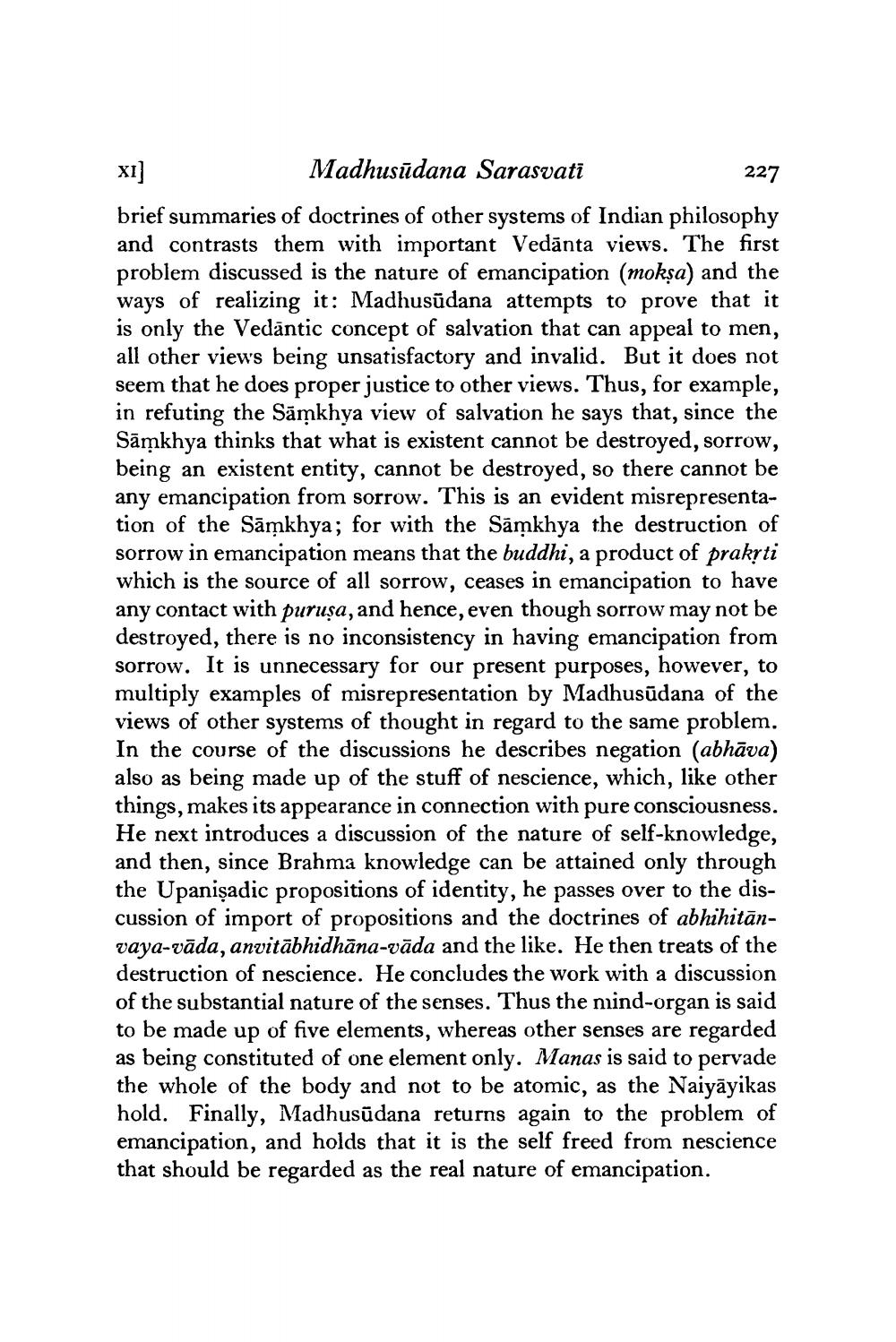________________
Xi]
Madhusüdana Sarasvati
227 brief summaries of doctrines of other systems of Indian philosophy and contrasts them with important Vedānta views. The first problem discussed is the nature of emancipation (mokṣa) and the ways of realizing it: Madhusūdana attempts to prove that it is only the Vedāntic concept of salvation that can appeal to men, all other views being unsatisfactory and invalid. But it does not seem that he does proper justice to other views. Thus, for example, in refuting the Sāmkhya view of salvation he says that, since the Sāmkhya thinks that what is existent cannot be destroyed, sorrow, being an existent entity, cannot be destroyed, so there cannot be any emancipation from sorrow. This is an evident misrepresentation of the Sāņkhya; for with the Sāmkhya the destruction of sorrow in emancipation means that the buddhi, a product of prakyti which is the source of all sorrow, ceases in emancipation to have any contact with puruṣa, and hence, even though sorrow may not be destroyed, there is no inconsistency in having emancipation from sorrow. It is unnecessary for our present purposes, however, to multiply examples of misrepresentation by Madhusūdana of the views of other systems of thought in regard to the same problem. In the course of the discussions he describes negation (abhāva) also as being made up of the stuff of nescience, which, like other things, makes its appearance in connection with pure consciousness. He next introduces a discussion of the nature of self-knowledge, and then, since Brahma knowledge can be attained only through the Upanișadic propositions of identity, he passes over to the discussion of import of propositions and the doctrines of abhihitānvaya-vāda, anvitābhidhāna-vāda and the like. He then treats of the destruction of nescience. He concludes the work with a discussion of the substantial nature of the senses. Thus the mind-organ is said to be made up of five elements, whereas other senses are regarded as being constituted of one element only. Manas is said to pervade the whole of the body and not to be atomic, as the Naiyāyikas hold. Finally, Madhusūdana returns again to the problem of emancipation, and holds that it is the self freed from nescience that should be regarded as the real nature of emancipation.




